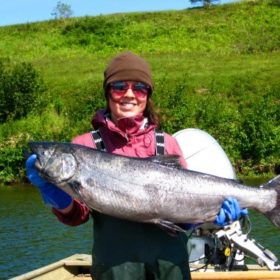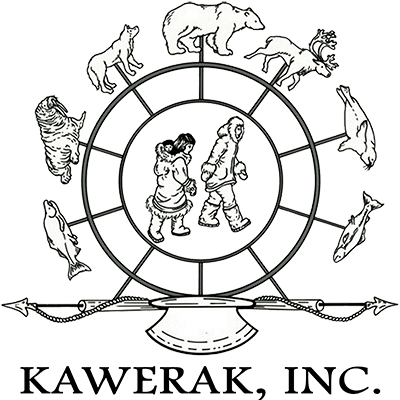How do you participate in marine conservation at home?
I have spent the last five summers on the Unalakleet River and in the Norton Sound monitoring the health of salmon runs with the Alaska Department of Fish and Game. The field data my team collects is a major factor in determining when and if commercial fishing is allowed in our region. At home, my husband and I recycle whenever we can, including materials we scrounge at our local dump. Also, we enjoy beach combing at low tide. We pick up some trash, rope, and net supplies that wash up tangled on shore. Last summer we recycled materials we found to build subsistence nets which we are using this summer.
Do you plan to continuing with Fish & Game after you finish school in December?
After graduation, I hope to continue my education with a master’s degree in Rural Development. My degree in Rural Development has taught me that real change starts at the local level. Down the road, I would love to impact marine conservation in my community and region by working with local people and organizations to strengthen the health of the ocean and protect subsistence rights to marine resources. I am a lifelong learner and I hope to continue to learn from my elders about the ocean and its animals.
How do you define marine conservation?
My ancestors relied heavily on fish, seals, whales, and walruses for thousands of years. Conserving marine resources includes changing human behaviors to protect and sustain the health of our precious ocean and seas for future generations so that people can continue to rely on these resources as my ancestors did.

